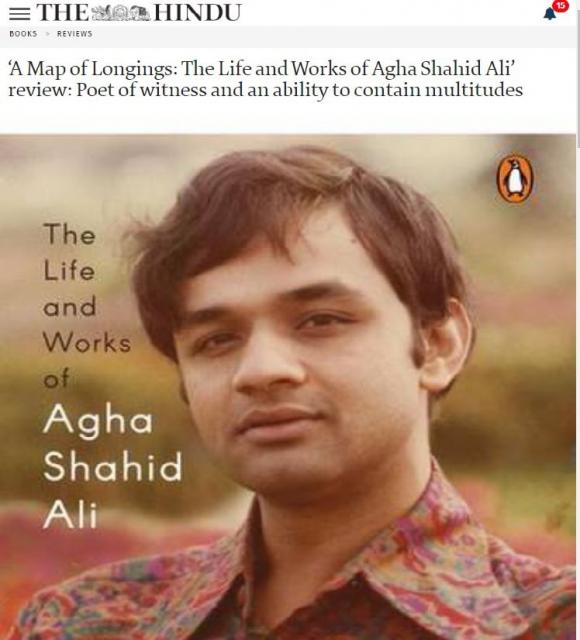Agha Shahid Ali hailed from various worlds, Indian-American, Kashmiri-non Kashmiri, English-Urdu, but did not fully belong to any one
They ask me what Shahid means: Listen, listen:/It means “the beloved” in Persian, “witness” in Arabic.
Seldom, if ever, does a poet leave behind such consistent milestones in his poetic journey which may be used as signposts later to study his life and work in a purely chronological manner. Agha Shahid Ali’s (1949–2001) work has that contextual quality. The markers have been picked up and put to good use by his biographer, Manan Kapoor, to tell the story of a life that was extraordinary and a body of work deeply rooted in the Indian tradition. Though written in English, his poetic voice draws from other literary traditions — Urdu, Persian and Kashmiri; it speaks of the intensely personal and the political, often blurring the boundaries.
Loss, and the memory of loss, remains Shahid’s lifelong concern. He discovered his engagement with loss early in his poetic career and remained true to it, often returning to an early loss such as the death of Begum Akhtar, his muse. Belonging to multiple worlds — Indian/American, Kashmiri/Non-Kashmiri, English-speaking/Urdu-speaking — and yet not fully belonging to any one, he is in the true sense a poet of witness: he sees and records his experiences as in this elegy In Search of Evanescence: It was a year of brilliant water/in Pennsylvania that final summer/seven years ago, the sun’s quick reprints/in my attaché case: those students/of mist have drenched me with dew, I’m driving...
At the University of Delhi, Shahid read Milton and Shakespeare; his parents introduced him to Ghalib and Faiz in their home in Kashmir. He went on to teach English and creative writing at colleges across the U.S. while continuing to write and publish his poetry to much acclaim acquiring a near-iconic status in his own lifetime. His friendships as much as his eclectic reading and experiences find expression in a stunning turn of phrases (‘crimsoned spillages’ for the bloodshed in Kashmir), or a forgotten history (‘The Dacca Gauzes’), or grief over his beloved mother’s death (‘Lenox Hill’); influenced as much by Emily Dickinson as Husain, the martyred hero of Karbala, Shahid’s singular quality is his ability to contain multitudes. Then there are his experiments with the ghazals, such as this sher from Call Me Ishmael Tonight: A Book of Ghazals: In the heart’s wild space lies the space of wilderness./What won’t one lose, what home one won’t give forever!
Making common cause with a host of issues, his poetry reflects these diverse interests: the gayaki of Begum Akhtar, the loss of a way of life that once was in Kashmir, of living in different cities in America, the resistance movement in Palestine. But then there’s also the vexing business of remembering, and remembering things differently from others; as Shahid writes, ‘My memory is again in the way of your history’.
Memory, loss, remembrance recur in poetry collections such as: Bone-Sculpture (1972), In Memory of Begum Akhtar (1979), A Walk Through the Yellow Pages (1987), The Half-Inch Himalayas (1987), A Nostalgist’s Map of America (1991), The Beloved Witness: Selected Poems (1992), The Country Without a Post Office (1997), Rooms are Never Finished (2001), Call Me Ishmael Tonight: A Book of Ghazals (W. W. Norton, 2003).
He also translated the poems of Faiz as The Rebel’s Silhouette: Selected Poems (1992), and edited Ravishing Disunities: Real Ghazals in English (2000).

